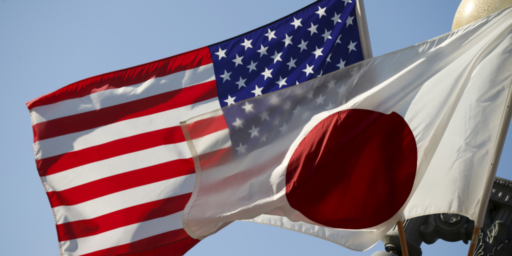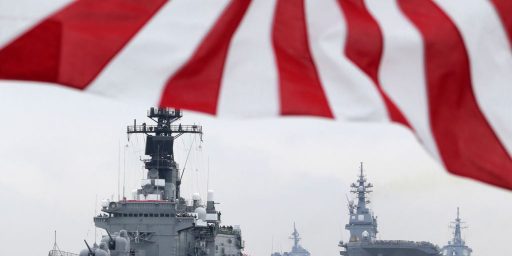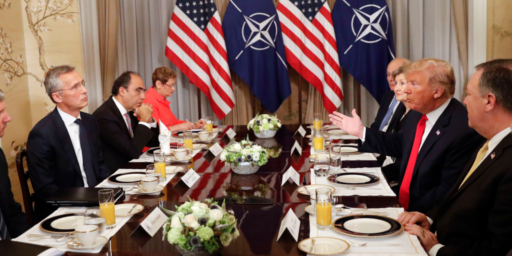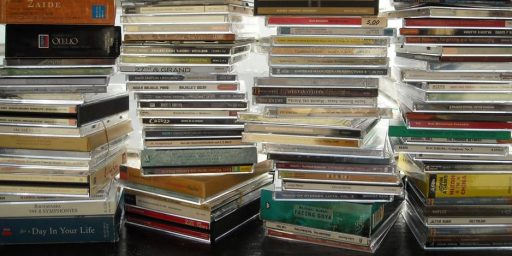THE HARD HAND OF WAR
Stephen Green has an interesting post in reaction to today’s Thomas Friedman column. Friedman notes that the Arab reaction to our toppling of Saddam has been mixed:
What has been the Arab reaction to Iraq?
The short answer is: Shock, denial, fear and some stirrings of change. The shock comes from how easily the U.S.-British force smashed Saddam’s regime. The denial is manifest in the absence of virtually any public discussion among Arab elites as to why Baghdad fell so easily and why such a terrible regime was indulged by the Arab world for so long.
“The most striking thing,” one Arab diplomat remarked to me, “is that there are no debates going on [in the Arab world.] There is no W.M.D. debate. There is no debate about the atrocities and the mass graves. Even inside Iraq there doesn’t seem to be much soul-searching, like there was in Germany after World War II. That is worrisome to me. People have to learn from the mistakes that were made, and there is no attempt at doing that.”
Stephen notes that, in contrast to the utter havoc we wreaked on Germany and Japan, the Iraqis have not had to feel what Sherman termed “the hard hand of war:”
The problem we have in Iraq is, we smashed their army, but not the country.
Don’t get me wrong here, though. Let’s not level cities just because we think it sets a good example. Nuking Baghdad would be a bad idea, no matter what lessons it might teach the survivors. There’s no need to send in 30 divisions when five will get the job done.
But let’s not kid ourselves, either.
Sparing civilians is morally noble, politically necessary, and just plain the right thing to do. However, doing so takes a lot of the pain out of being on the losing side. And without pain, the lesson becomes harder to learn.
While there is merit in this argument, there is a flip side. There was an amazing amount of resentment, especially in Japan, that came from our tactics. Firebombing cities tends to motivate them to fight on, not demoralize them. Part of the rationale behind “shock and awe” was that they would be amazed that we were able to decapitate the country and still leave most of the city standing. This is virtually magic and had to be mighty impressive.
I think what we’re seeing in the guerilla movement is not so much the arrogance of people who don’t think they are defeated but desperation on the part of the few who benefitted from Saddam’s rule and who are scared of the reprisals that will follow once the former “outs” are in control of the government and the society.
While we’re clearly learning as we go in the rebuilding stage, making some mistakes along the way, we’re fast learners. Our military is amazingly adaptable. I’m not exactly sure what the outcome is going to be, but I’m reasonably confident that the guerillas will be defeated in a few months and that an Iraqi government will be in place within a year.
Will it be as friendly as the postwar German and Japanese governments? Doubtful. Not only is there not the forced alliance of the Cold War but there are enormous cultural divides that go beyond those we faced after WWII. Germany was a Western country that went through the Renaissance, Reformantion, Enlightenment, and Industrial Revolution. Japan, while neither Western nor Christian, had the Meiji Restoration and their own version of industrialization. Iraq is still in many ways a pre-Enlightenment society that has developed on a radically different path. We’re not going to convert them to US-style democracy overnight. I do believe enlightened self-interest will go a long way to making them trading partners and getting them slowly integrated into the modern world.
Update (1022): Donald Sensing has some thoughts on this one as well.





